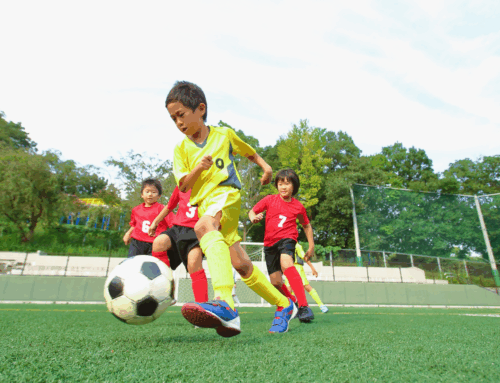Get our exclusive report. Download the iSport360 Club Switching Report Here – For Club Admins, Rec Leaders and Coaches.
How to Implement A Cell Phone Ban at Practice
Cell phones are here to stay but we don’t have to let them invade every space. Having a break from cell phones is a good thing. Just think, too much of a good thing is well…not. Their presence at sports practices can be a significant distraction, undermining the benefits of physical activity and team interaction. So here we are, get our tips on a cell phone ban at practice. We promise that it won’t feel like punishment but more like a benefit.
Strategies for Creating a Cell Phone Ban
Establish Clear Policies: This is a no-brainer, but not only will clear policies to help. You need to enforce it. Create clear, written policies about cell phone use during practices. Communicate these policies to athletes, parents, and coaches at the beginning of the season.
My one exception is to allow phones during an emergency. The coaches have no questions asked, but if players come up and say I need to check my phones during breaks, we let them.
Designate a Phone Collection Area: If you need to set up an area, feel free. A lot of schools are setting up areas where students can drop off their phones and pick them up after class. In my opinion, it just depends on your situation and if you really need to do this.
Set up a designated area where athletes can safely store their phones before practice begins. This could be a secure locker, a basket, or a designated table supervised by a coach. This approach ensures that phones are out of sight and out of mind.
Encourage Parental Support: Engage with parents to explain the policy and its benefits. Encourage them to support their children in adhering to the rules. When parents understand the positive impact of phone-free practices, they are more likely to reinforce the policy at home.
Lead by Example: Coaches and team leaders should model the behavior they expect from their athletes. By not using their own phones during practice, they set a positive example and reinforce the importance of focusing on the activity at hand.
My exception here is that I tell my players if I am going to use my phone. During practice I use it for a variety of reasons 1) to check ominous weather (need to focus on safety first) 2) to use the stopwatch, I need the numbers to be bigger so my phone works well 3) if parents need to reach me. I do tell parents that I don’t check my phone during practices but if something happens, I do have it on me. Being up front with your players and telling them why you have it, helps give you credibility.
Create Engaging Practice Sessions: Keep practices dynamic and engaging to minimize the temptation for athletes to check their phones. Incorporate a variety of drills, games, and activities that keep players actively involved and interested throughout the session. This is obvious, but keep it moving.
Benefits of Removing Cell Phones
Enhanced Focus and Concentration: Removing cell phones from practice helps athletes focus entirely on the training session. Without the distraction of notifications, social media, or text messages, players can concentrate better on drills, instructions, and team interactions.
Improved Team Cohesion: When athletes are not distracted by their phones, they have more opportunities to bond with their teammates. This face-to-face interaction fosters a sense of camaraderie and teamwork, essential for building a strong, cohesive team.
Increased Physical Activity: With cell phones out of the picture, athletes are more likely to engage fully in physical activities. This increased participation enhances their overall fitness, skill development, and enjoyment of the sport.
Better Communication Skills: Practices without cell phones encourage athletes to communicate more effectively with coaches and teammates. This improvement in verbal and non-verbal communication is crucial for successful teamwork and performance in games.
Promotion of Mindfulness: A phone-free environment promotes mindfulness, allowing athletes to be fully present in the moment. This presence helps them to better absorb coaching instructions, be more aware of their movements, and respond more quickly to changes during practice.
Development of Self-Discipline: Adhering to a no-phone policy teaches young athletes self-discipline and the ability to manage distractions. These skills are not only valuable in sports but also in other areas of life, including academics and future professional endeavors.
Removing cell phones from youth sports practice offers numerous benefits that enhance the overall experience for young athletes. By establishing clear policies, engaging parents, and creating dynamic practice sessions, coaches can successfully minimize distractions and foster a more focused, cohesive, and engaging environment.
The result is not just better performance on the field but also the development of important life skills such as communication, self-discipline, and mindfulness. Ultimately, a phone-free practice ensures that young athletes get the most out of their sports experience, both in terms of physical development and personal growth.
iSport360 is the only app that does it all for youth sports. For more information on what we do, click here.
About the author:
Amy Masters is a sports mom, coach, and club administrator. She has been coaching youth sports for more than 10 years. She started Jr Lions Field Hockey, the youth recreation program for the Hunterdon County community growing it from 40 players in year 1 to 150 players by year 3. A few years later, she saw the love and competitiveness grow then started Omega Field Hockey Club serving NJ and PA players. Before coaching, she was a collegiate field hockey player for Lock Haven University. In her spare time (lol), she is head of marketing for iSport360 and the co-editor of the Youth Sports Survival Guide. The Youth Sports Survival Guide is the largest youth sports newsletter in the world.
Learn more or request a demo of our youth sports software that is helping teams improve communication, organization and player development.
August 3, 2024





